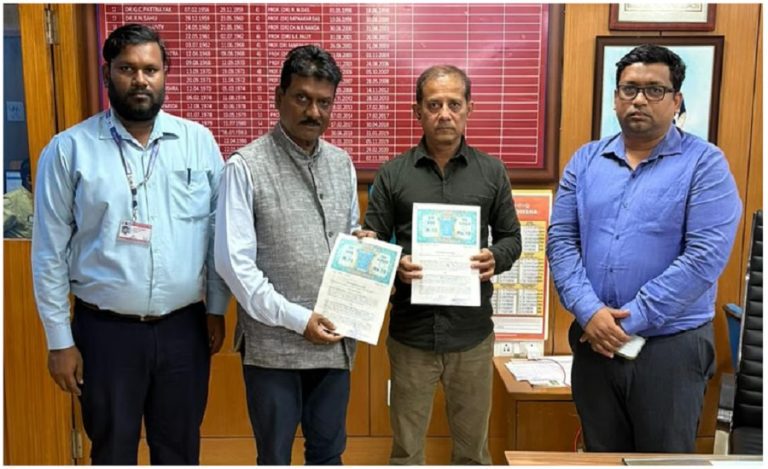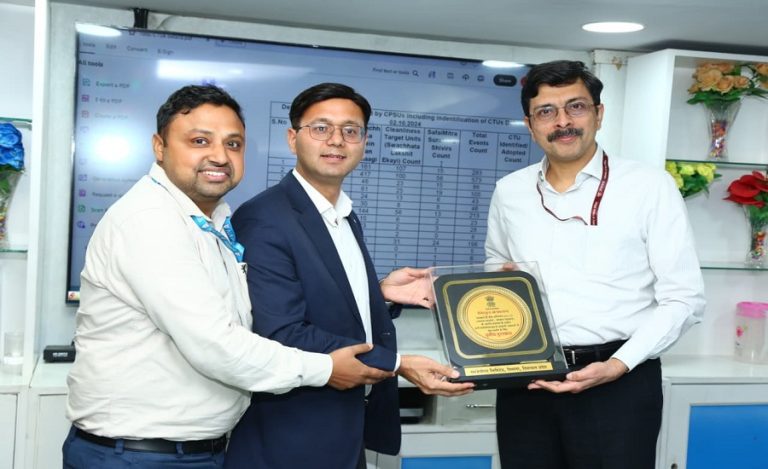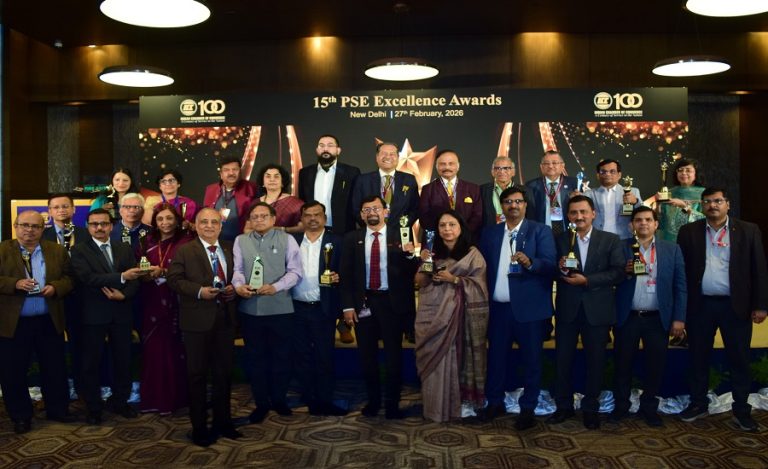Known for his stellar efforts in environment conservation, Forest Range Officer of Ramanathapuram in Tamil Nadu, Mr. S Sathish is a superhero in disguise of a uniform.
Right now he is packed with zeal to save the depleting marine life in the Gulf of Mannar Marine National Park. He has several achievements to his credit, ranging from bringing down the organized crime of poaching, saving the Olive Ridley Turtle, organizing underwater plastic clean-ups, and growing 100 acres of mangrove forest.
Speaking exclusively with Indian Masterminds, Mr. Sathish shed light on the high points of his productive career.
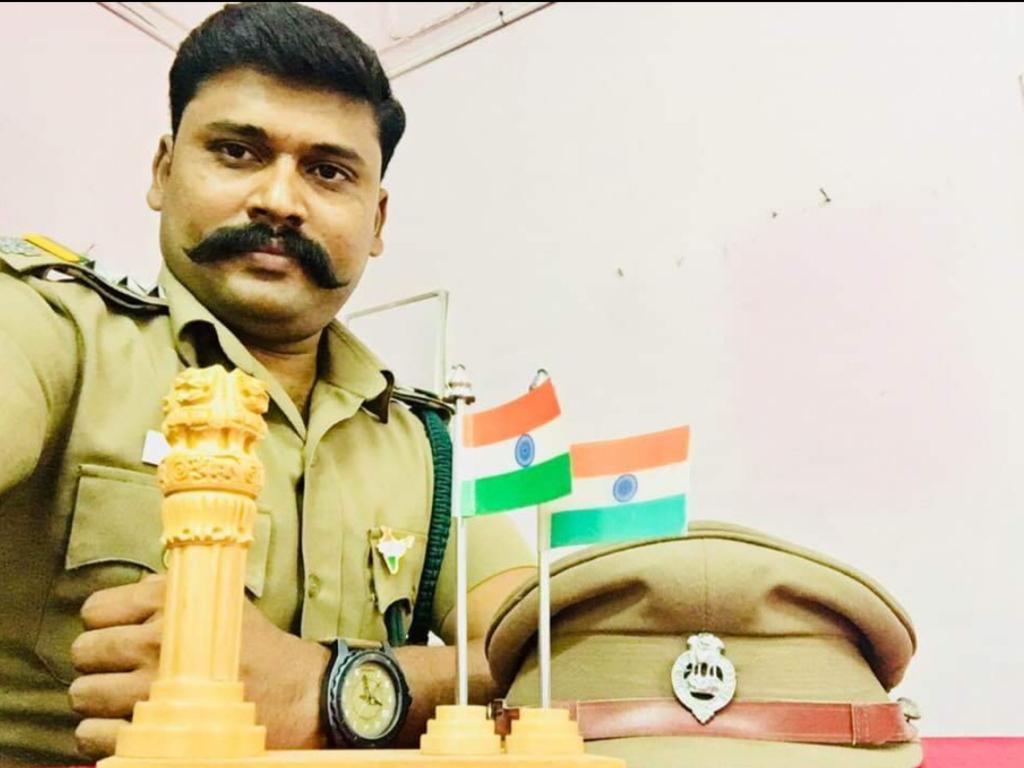
SAVING SEA CUCUMBERS
Illegal poaching of sea cucumbers (marine animals with an elongated body in the shape of a cucumber) was a menace to marine conservation. To prevent this, Mr. Sathish identified hotspots where looting and poaching took place and engaged two teams to patrol 24×7 in those places.
“We were able to detect several crimes from Oct’16 to Apr’19 and were able to book 70-plus cases and take in over 100 criminals. Due to numerous awareness programs, several youth also backed out from illegal trading and poaching of sea cucumbers,” Mr. Sathish told Indian Masterminds.
The IFS officer, with the help of local police, completely demolished processing units of criminals due to which he was also threatened for his life, but he did not back out and kept doing his work despite the threats.
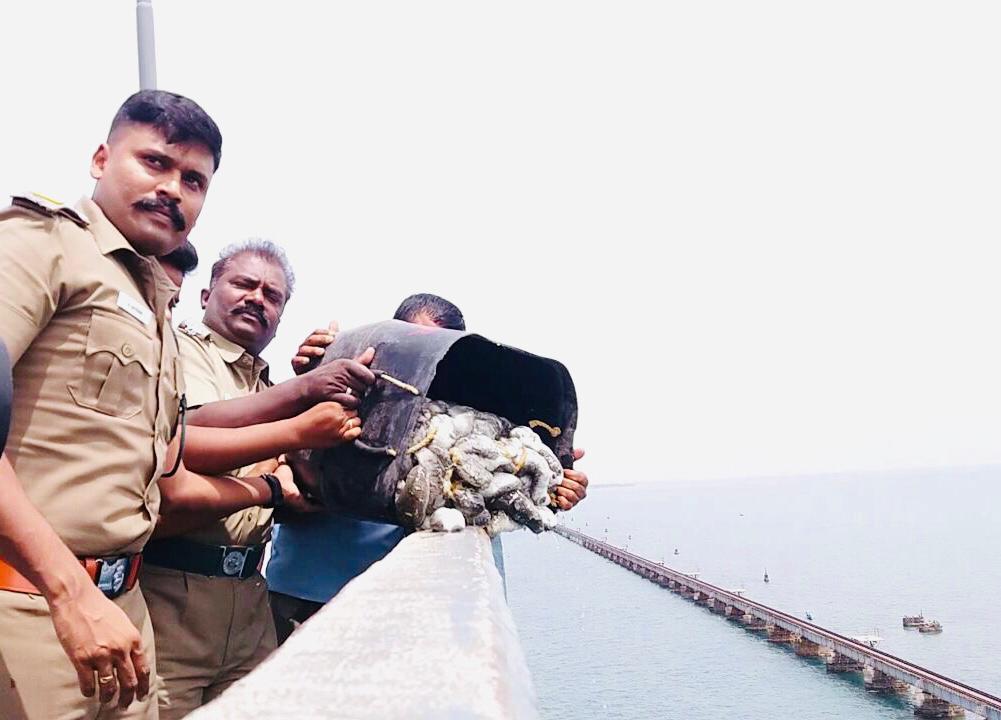
SCUBA-DIVING CLEANING CAMPAIGN
Under the guidance of the Wildlife Warden of the Gulf of Mannar, Mr. Sathish has started a scuba-diving team, the first in India to have a ‘diving’ license. With the help of this team, he has taken up a plastic cleanup drive- underwater, that is!
“We have selected hotspots and along with eight members of our team, we go underwater and collect plastic and trash which is otherwise harming coral reefs and sea grass beds. Some eight million tons of plastic gets accumulated every year and 267 marine species are being affected by it,” he disclosed.
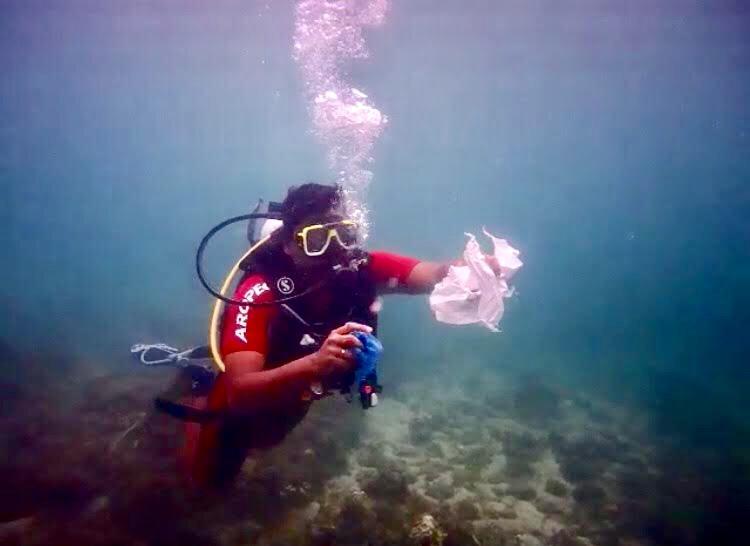
SEA COWS SAFEGUARDING
Moreover, Mr. Sathish is also preserving 65-70% of damaged coral reefs (caused by unscientific way of fishing) through the restoration of artificial coral reefs and seagrass rehabilitation. This is also necessary for saving ‘dugongs’ or sea cows.
“Seagrass meadows is very important for them which is why we choose barren land and rehabilitate seagrass beds,” stated Mr. Sathish.
Less than 200 dugongs exist in the country today because of poaching. To avoid this, the officer has launched ‘Sense of Dugong’ wherein the organizations involved gives away scholarships to school students and make them brand ambassadors of Dugong cultivation. They also distribute cheques worth thousands to people who rescue and release the sea cows.

PROTECTING OLIVE RIDLEY TURTLES
From 2016-19, the officer’s team collected over 40,000 Olive Ridley Turtle eggs. Their nesting period is from the months of December to March. Mr. Sathish would venture out at 3 in the morning, with his team, to collect the eggs and kept them in a semi-permanent hatchery.
“The incubation period was of 50-70 days after which the hatchlings broke out from the shells. We safely released these hatchlings into the sea. We had to protect the eggs from public, stray dogs, and big birds. The hatchlings have been released with a 95% survival rate,” the officer told Indian Masterminds.
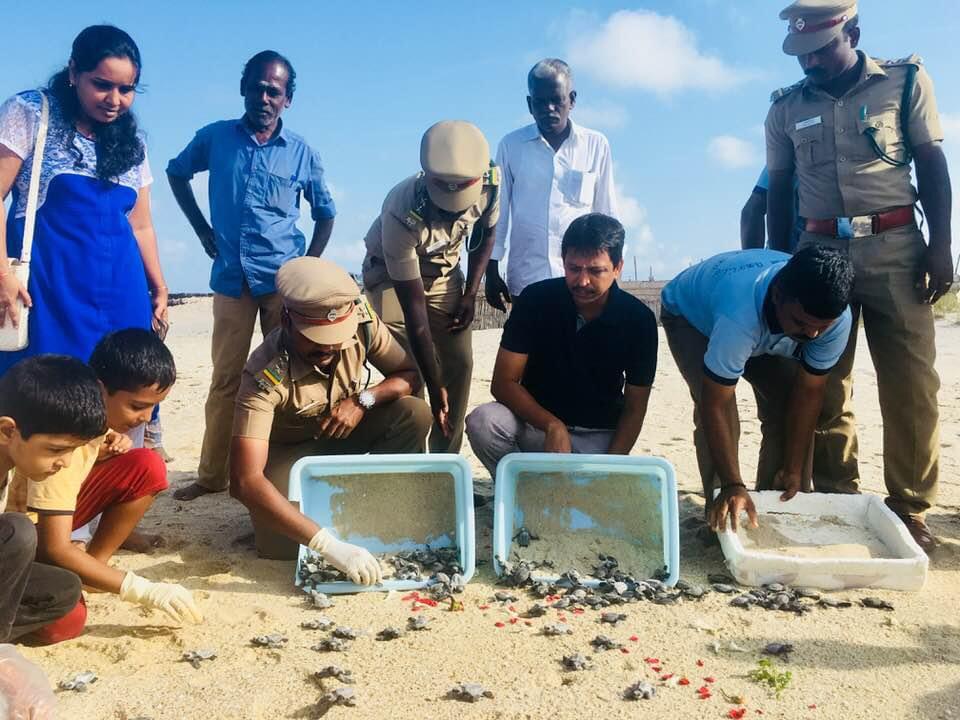
Talking about why it necessary to conserve sea turtles, Mr. Sathish explained that they consume jellyfishes that are harmful to fish. “Jellyfishes consume little fishes, thus affecting their population. More sea turtles ensure lesser jellyfishes and ultimately it helps raise the population of fish.’’
Further, to raise awareness against consuming sea turtles, several radio channels and organizations declared monetary prizes to people who would release them in the sea. This also motivated people to do away with the practice of consuming turtle meat.
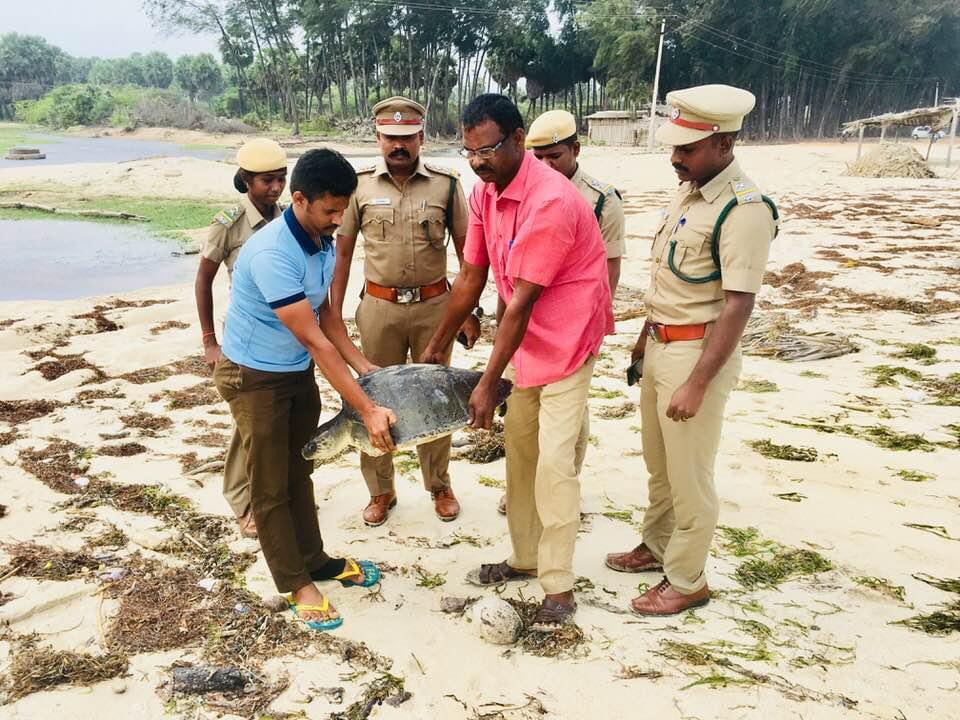
MANGROVE ECOSYSTEM
Mr. Sathish and his team had recorded 11 species of mangrove plantation, which has now been reduced to 3-4 species because of scanty rainfall and no good seawater.
“Salt percentage has also increased to 45%, because of which various species went extinct. To tackle this, we initiated to form new mangrove plantation by planting 35 acres with specie that is available in island area and 75 acres with senior species,” he said.
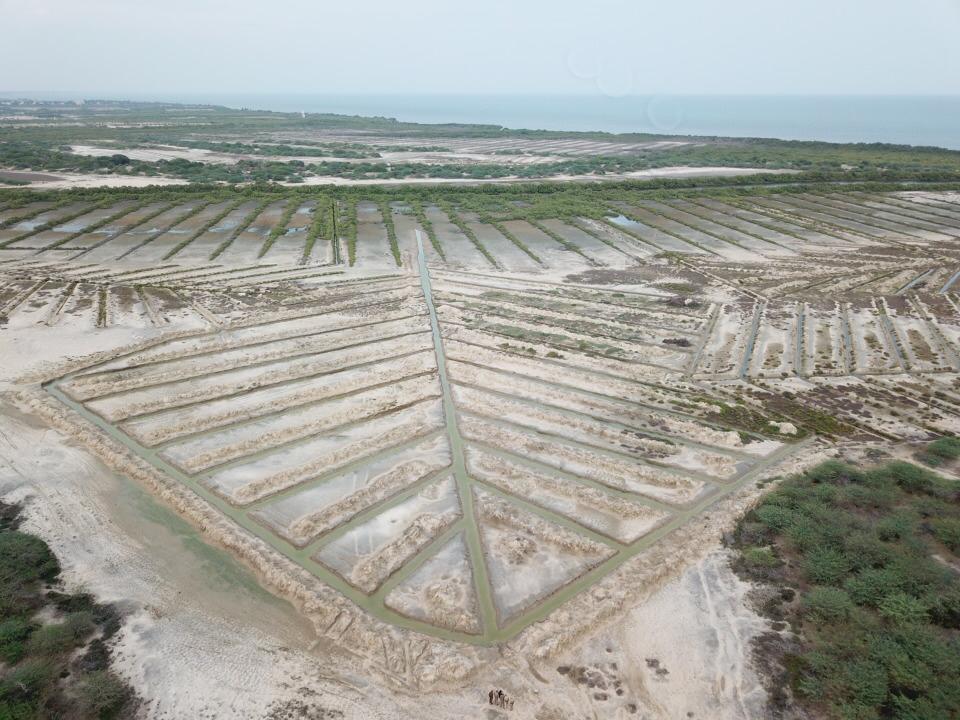
Mr. Sathish has also extended protection to old mangrove plantations. Conserving it is important as it houses marine life and several migrating birds.
He has also started a community-based ecosystem in the nearby mangrove for which he even received an award!
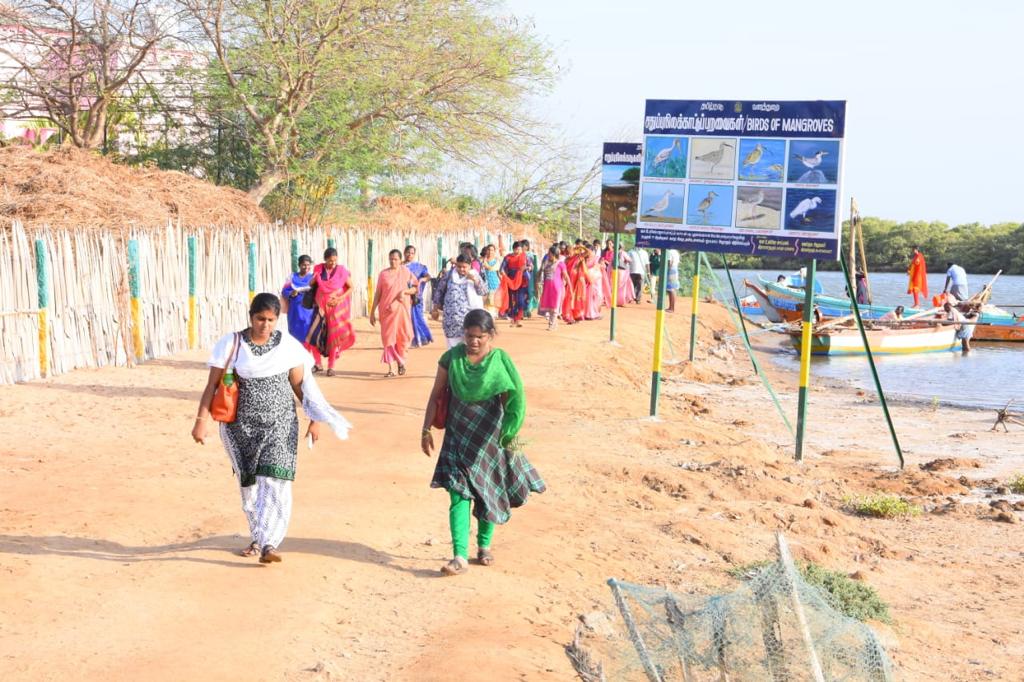
GARNERING ACCOLADES
Mr. Sathish is the recipient of the India Biodiversity Award for ‘Sustainable use of Biological Resource’, for his remarkable work in nearby village Kaarankadu in preserving community-based eco-tourism at Ramanathapuram.
He also received the ACT Hero Award in 2019 under the category of ‘Saving Species’ by Royal Bank. The year 2021 saw him being honored with the ‘International Ranger Award’ by the International Union for Conservation of Nature through which he received $10,000 (roughly Rs7.5 lakhs) which he contributed to his Gulf of Mannar department.

In the future, Mr. Sathish would like to work towards tiger conservation and explore new terrains, now that he has accomplished so much in marine conservation.










